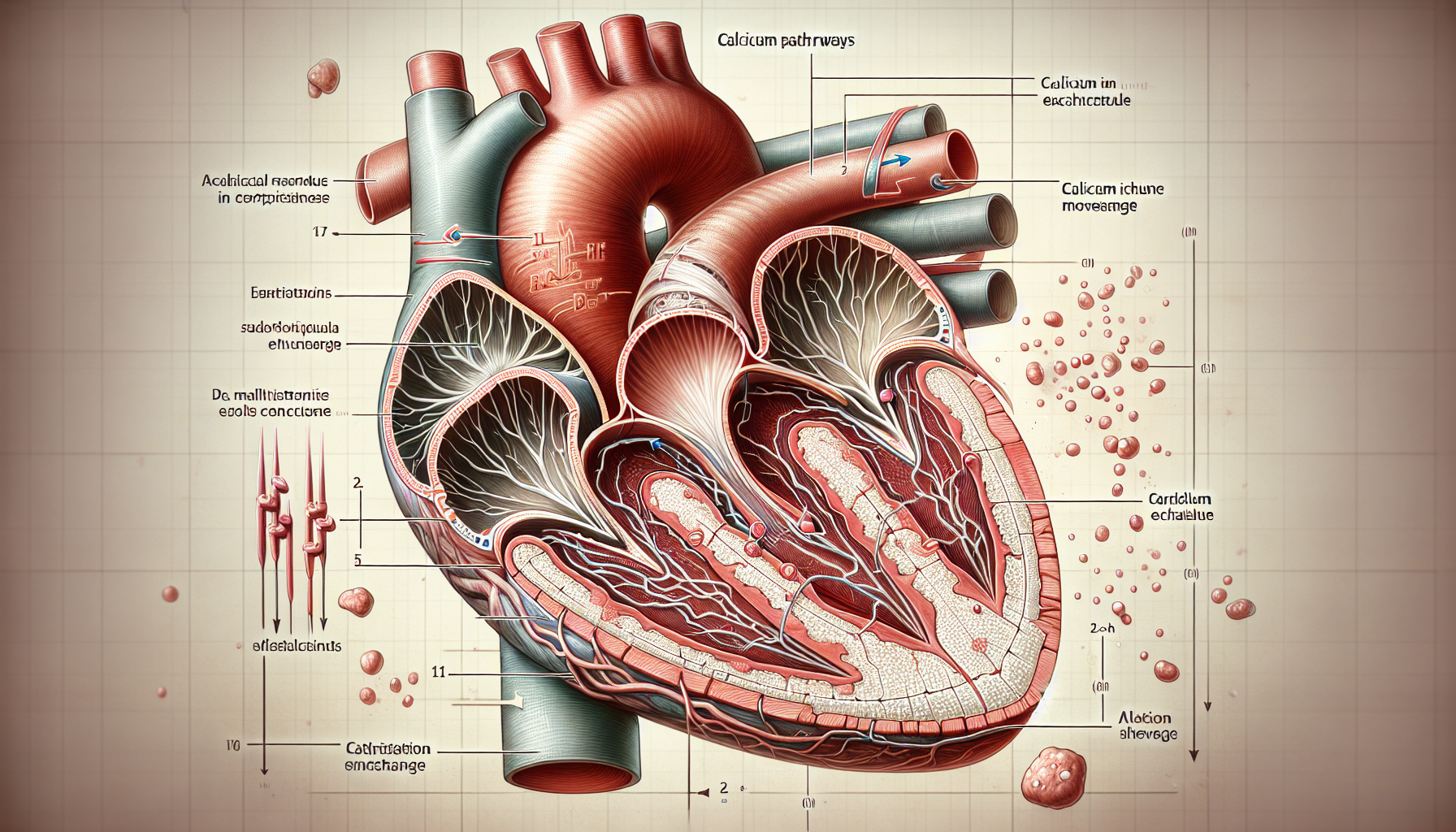Calcium is a well-known mineral, predominantly recognized for its crucial role in bone health. However, its significance extends beyond strengthening bones to a vital participant in maintaining heart health. This article delves into the multifaceted functions of calcium in cardiovascular function, the implications of calcium imbalance, and how to manage calcium levels for optimal heart health.
Calcium’s Multifunctional Role in Cardiovascular Health
The heart, a marvel of biological engineering, relies on a symphony of chemical signals and electrical impulses to function correctly. Calcium ions play an instrumental role in this complex system. They are responsible for initiating the electrical impulses that regulate heartbeats. When calcium enters the cells of the heart muscle, it triggers a series of events that culminate in the contraction of the heart, pumping blood throughout the body.
Moreover, calcium contributes to vascular function. It assists in the contraction and relaxation of blood vessels, which controls blood pressure and ensures that oxygen and nutrients are delivered efficiently to various body tissues. An optimal calcium balance is, therefore, essential for maintaining the rhythmic and forceful contractions of the heart, as well as the regulation of blood pressure.
For more detailed information on how calcium supports overall cardiovascular health, visit Cardiovascular Health.
The Consequences of Calcium Imbalance
While the presence of calcium is critical, its levels must be tightly regulated. Both excess and deficiency of calcium can lead to significant cardiovascular problems.
Hypercalcemia
An excess of calcium in the bloodstream, known as hypercalcemia, can lead to vascular calcification. This condition is characterized by the deposition of calcium in the blood vessels, which can stiffen the arteries, impeding their ability to expand and contract. This rigidity can increase blood pressure and strain the heart. Additionally, calcification of the coronary arteries can lead to a higher risk of heart attack due to restricted blood flow.
Hypocalcemia
On the other hand, low levels of calcium, or hypocalcemia, can disrupt the heart’s electrical impulses, leading to cardiac arrhythmias or irregular heartbeats. These irregular rhythms can weaken the heart over time and may progress to more severe conditions, such as heart failure.
Managing Calcium Levels for Heart Health
Diet
A balanced diet is the cornerstone of maintaining appropriate calcium levels. Dairy products, leafy greens, and fortified foods are excellent sources of calcium. Ensuring a diet rich in these foods can help maintain the calcium balance necessary for heart health. For insights into how dietary fats affect cardiovascular health, explore the article The Impact of Dietary Fats on Cardiovascular Health.
Supplements
For some individuals, dietary intake may not be sufficient, and calcium supplements may be necessary. It is crucial to consult a healthcare professional before starting any supplement regimen, as excessive calcium from supplements has been linked to heart disease risk.
Medical Monitoring
Regular medical check-ups can help monitor calcium levels, particularly for those with a history of heart disease or at high risk. Blood tests can assess calcium levels and determine if any action is needed to correct imbalances.
Lifestyle
Lifestyle factors also play a significant role in calcium balance and heart health. Regular exercise, avoiding smoking, and limiting alcohol consumption contribute to a healthy heart and balanced mineral levels. Discover more lifestyle strategies in the article Tackling Heart Health Through Holistic Lifestyle Changes.
External Resources for Further Exploration
- The National Institutes of Health (NIH) Office of Dietary Supplements provides a comprehensive overview of calcium, including its role in health, recommended intakes, sources, and the relationship with cardiovascular health.
- The American Heart Association (AHA) website offers resources on heart health, including the effects of minerals like calcium on heart function and disease prevention strategies.
- A scholarly article from the Journal of the American College of Cardiology discusses the impact of calcium supplements on heart health, offering a deeper dive into recent research findings.
- The Mayo Clinic provides patient education on hypercalcemia, detailing its causes, symptoms, and links to heart disease.
- For an in-depth understanding of vascular calcification, the Vascular Medicine journal offers peer-reviewed articles on the latest research and clinical findings.
Conclusion
Calcium’s role in heart health is both indispensable and intricate. It facilitates the heart’s function, but an imbalance can lead to severe cardiovascular diseases. A balanced diet, lifestyle choices, and medical supervision are key to maintaining calcium levels conducive to a healthy heart. As research advances, our understanding of calcium’s impact on cardiovascular health continues to evolve, underscoring the importance of staying informed and proactive about heart health.
For more information about maintaining a healthy heart during sedentary work, read Heart Health Strategies for People with Sedentary Jobs.



